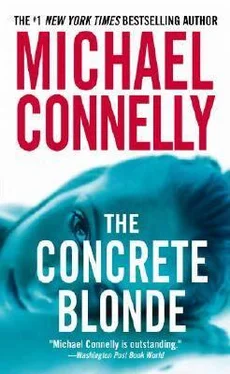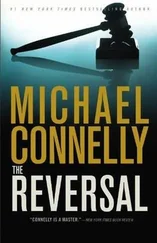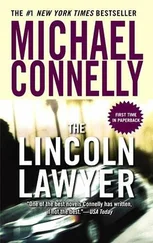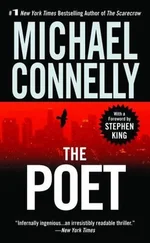Michael Connelly - The Concrete Blonde
Здесь есть возможность читать онлайн «Michael Connelly - The Concrete Blonde» весь текст электронной книги совершенно бесплатно (целиком полную версию без сокращений). В некоторых случаях можно слушать аудио, скачать через торрент в формате fb2 и присутствует краткое содержание. Жанр: Триллер, на английском языке. Описание произведения, (предисловие) а так же отзывы посетителей доступны на портале библиотеки ЛибКат.
- Название:The Concrete Blonde
- Автор:
- Жанр:
- Год:неизвестен
- ISBN:нет данных
- Рейтинг книги:3 / 5. Голосов: 1
-
Избранное:Добавить в избранное
- Отзывы:
-
Ваша оценка:
- 60
- 1
- 2
- 3
- 4
- 5
The Concrete Blonde: краткое содержание, описание и аннотация
Предлагаем к чтению аннотацию, описание, краткое содержание или предисловие (зависит от того, что написал сам автор книги «The Concrete Blonde»). Если вы не нашли необходимую информацию о книге — напишите в комментариях, мы постараемся отыскать её.
The Concrete Blonde — читать онлайн бесплатно полную книгу (весь текст) целиком
Ниже представлен текст книги, разбитый по страницам. Система сохранения места последней прочитанной страницы, позволяет с удобством читать онлайн бесплатно книгу «The Concrete Blonde», без необходимости каждый раз заново искать на чём Вы остановились. Поставьте закладку, и сможете в любой момент перейти на страницу, на которой закончили чтение.
Интервал:
Закладка:
“Good afternoon,” she began. “The judge is quite right when he tells you that this statement is nothing more than a road map.”
Good strategy, Bosch thought from the cellar of cynicism from which he viewed this whole case. Pander to the judge with your first sentence. He watched Chandler as she referred to the yellow legal pad she had put down on the lectern. Bosch noticed that over the top button of her blouse was a large pin with a round black onyx stone set in it. It was flat and as dead as a shark’s eye. She had her hair pulled severely back and braided in a no-nonsense style behind her head. But one tress of hair had come loose and it helped affect the image of a woman not preoccupied with her looks but totally focused on the law, on the case, on the heinous miscarriage of justice perpetrated by the defendant. Bosch believed she probably pulled the hair loose on purpose.
As he watched her start, Bosch remembered the thud he had felt in his chest when he heard she was the lawyer for Church’s wife. To him, it was far more disturbing than learning Judge Keyes had been assigned the trial. She was that good. That was why they called her Money.
“I would like to take you down the road a piece,” Chandler said and Bosch wondered if she was even developing a southern accent now. “I just want to highlight what our case is about and what we believe the evidence will prove. It is a civil rights case. It involves the fatal shooting of a man named Norman Church at the hands of the police.”
She paused here. Not to look at her yellow pad but for effect, to gather all attention to what she would say next. Bosch looked over at the jury. Five women and seven men. Three blacks, three Latinos, one Asian and five whites. They were looking at Chandler with rapt attention.
“This case,” Chandler said, “is about a police officer who wasn’t satisfied with his job and the vast powers it gave him. This officer also wanted your job. And he wanted Judge Keyes’s job. And he wanted the state’s job of administering the verdicts and sentences set down by judges and juries. He wanted it all. This case is about Detective Harry Bosch, who you see sitting at the defendant’s table.”
She pointed at Bosch while drawing out the word dee-fend-ant. Belk immediately stood up and objected.
“Miss Chandler does not need to point my client out to the jury or make sarcastic vocalizations. Yes, we are at the defense table. That’s because this is a civil case and in this country anybody can sue anybody, even the family of a-”
“Objection, Your Honor,” Chandler shouted. “He is using his objection to further try to destroy the reputation of Mr. Church, who was never convicted of anything because-”
“Enough!” Judge Keyes thundered. “Objection sustained. Ms. Chandler, we don’t need to point. We all know who we are. We also do not need inflammatory accent being placed on any words. Words are beautiful and ugly, all on their own. Let them stand for themselves. As for Mr. Belk, I find it acutely annoying when opposing counsel interrupts opening statements or closing arguments. You will have your turn, sir. I would suggest that you not object during Ms. Chandler’s statement unless an egregious trespass on your client has occurred. I do not consider pointing at him worth the objection.”
“Thank you, Your Honor,” Belk and Chandler said in unison.
“Proceed, Ms. Chandler. As I said in chambers this morning, I want opening statements done by the end of the day and I have another matter at four.”
“Thank you, Your Honor,” she said again. Then, turning back to the jury, she said, “Ladies and gentlemen, we all need our police. We all look up to our police. Most of them-the vast majority of them-do a thankless job and do it well. The police department is an indispensable part of our society. What would we do if we could not count on police officers to serve and protect us? But that is not what this trial is about. I want you to remember that as the trial progresses. This is about what we would do if one member of that police force broke away from the rules and regulations, the policies that govern that police force. What we are talking about is called a rogue cop. And the evidence will show that Harry Bosch is a rogue cop, a man who one night four years ago decided to be judge, jury and executioner. He shot a man that he thought was a killer. A heinous serial killer, yes, but at the moment the defendant chose to pull out his gun and fire on Mr. Norman Church there was no legal evidence of that.
“Now, you are going to hear from the defense all manner of supposed evidence that police said they found that connected Mr. Church to these killings, but remember during the trial where this evidence came from-the police themselves-and when it was found-after Mr. Church had been executed. I think we will show that this supposed evidence is questionable at best. Tainted, at best. And, in effect, you will have to decide if Mr. Church, a married man with two young children and a well-paying job at an aircraft factory, was indeed this killer, the so-called Dollmaker, or simply was made the fall guy, the scapegoat, by a police department covering up the sin of one of its own. The brutal, unwarranted and unnecessary execution of an unarmed man.”
She continued on, speaking at length about the code of silence known to exist in the department, the force’s long history of brutality, the Rodney King beating and the riots. Somehow, according to Honey Chandler, these were all black flowers on a plant grown from a seed that was Harry Bosch’s killing of Norman Church. Bosch heard her go on but wasn’t really listening anymore. He kept his eyes open and occasionally made eye contact with a juror, but he was off on his own. This was his own defense. The lawyers, the jurors and the judge were going to take a week, maybe longer, to dissect what he had thought and done in less than five seconds. To be able to sit in the courtroom for this he was going to have to be able to go off on his own.
In his private reverie he thought of Church’s face. At the end, in the apartment over the garage on Hyperion Street. They had locked eyes. The eyes Bosch had seen were killer’s eyes, as dark as the stone at Chandler’s throat.
“… even if he was reaching for a gun, would that matter?” Chandler was saying. “A man had kicked the door open. A man with a gun. Who could blame someone for reaching, according to police, for a weapon for protection. The fact that he was reaching for something seemingly as laughable as a hairpiece makes this episode all the more repugnant. He was killed in cold blood. Our society cannot accept that.”
Bosch tuned her out again and thought of the new victim, entombed for what was likely years in a concrete floor. He wondered if a missing-person report was ever taken, if there was a mother or father or husband or child wondering all this time about her. After returning from the scene he had started to tell Belk about the discovery. He asked the lawyer to ask Judge Keyes for a continuance, to delay the trial until the new death could be sorted out. But Belk had cut him off, telling him that the less he knew the better. Belk seemed so frightened of the implications of the new discovery that he determined that the best tack was to do the opposite of what Bosch suggested. He wanted to hurry the trial through before news of the discovery and its possible connection to the Dollmaker became public.
Chandler was now near the end of the one-hour allotment for her opener. She had gone on at length about the police department’s shooting policy and Bosch thought she might have lost the grip she had on the jury in the beginning. For a while she had even lost Belk, who sat next to Bosch paging through his own yellow pad and rehearsing his opener in his head.
Читать дальшеИнтервал:
Закладка:
Похожие книги на «The Concrete Blonde»
Представляем Вашему вниманию похожие книги на «The Concrete Blonde» списком для выбора. Мы отобрали схожую по названию и смыслу литературу в надежде предоставить читателям больше вариантов отыскать новые, интересные, ещё непрочитанные произведения.
Обсуждение, отзывы о книге «The Concrete Blonde» и просто собственные мнения читателей. Оставьте ваши комментарии, напишите, что Вы думаете о произведении, его смысле или главных героях. Укажите что конкретно понравилось, а что нет, и почему Вы так считаете.












